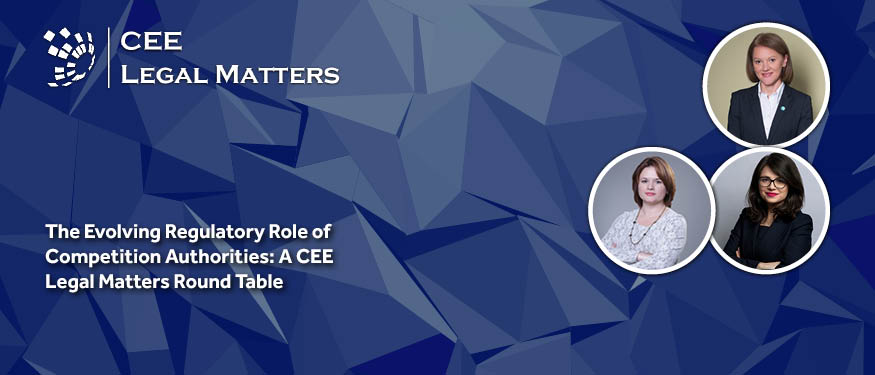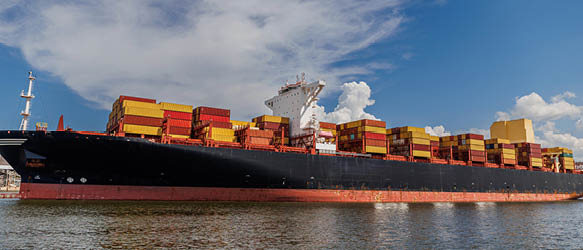On January 16, 2025, competition experts from Moldova, North Macedonia, and Romania, sat down for a virtual round table moderated by CEE Legal Matters Managing Editor Radu Cotarcea to discuss the evolving role of the regulatory authorities in their countries.
Round Table Participants:
- Anca Diaconu, Partner, Nestor Nestor Diculescu Kingston Petersen
- Carolina Parcalab, Legal Manager, ACI Partners
- Jasmina Ilieva Jovanovik, Partner, Debarliev Dameski & Kelesoska
CEELM: Let’s start with the basics – who is the competition regulatory body in your jurisdiction and how is its leadership appointed?
Ilieva Jovanovik: In North Macedonia, the local authority responsible for competition regulation is the Commission for Protection of Competition. It is a state-independent authority comprised of a president and four members. These members are elected by the Assembly of North Macedonia following a proposal from the government. Additionally, the commission employs professional supporting staff. Members of the commission serve a five-year term and can be reappointed for a second term. The commission, although an independent organization, is still financially dependent on the state as it has no income on its own and is entirely financed by the state budget. Notably, a significant legislative change took place last year, redefining the role and qualifications of the commissioners. Previously, not all commissioners were fully involved in the daily operations of the commission, yet the recent amendment to the law now requires all commissioners to be professionally engaged and present in the daily operations of the commission. This change is expected to strengthen the role of the commission and improve its overall effectiveness.
Parcalab: In Moldova, the competition authority is the Competition Council. It is a public authority led by a plenum, which is a collegial decision-making body consisting of a president, two vice presidents, and two additional members. The president also has executive powers. Members of the plenum are appointed for a five-year mandate, which can be extended for an additional five-year term. The appointment process requires a simple majority vote in parliament. Although the Competition Council is designed as an independent authority, its independence is questionable, as it remains heavily influenced by parliament, which also has the authority to dismiss members.
Diaconu: In Romania, the competent authority is the Romanian Competition Council (RCC), a collegial body, whose plenum consists of a president, two vice presidents, and six other competition counselors. The RCC is a large institution, employing around 350 people, with numerous territorial directorates throughout the country.
The current plenum was appointed last year. This came with some delay, after a period when the authority had difficulties in enforcing competition rules due to the lack of quorum since some of the members’ mandates were expired.
Separately, there have been some issues with regard to some of the plenum members’ mandates, due to a legal provision that was later deemed unconstitutional. Companies have invoked these in the context of court challenges against sanctions imposed by the authority, questioning the legitimacy of the plenum issuing the sanctioning decisions. Due to the significant impact of accepting such a potential line of argumentation (that may result in the annulment of a significant number of sanctioning decisions), the Competition Council has even submitted requests for preliminary rulings before the European Court of Justice. While the final outcome of some of these cases is still pending, I expect that these issues will increase the level of diligence of the Competition Council in terms of procedural formalities.
CEELM: How active would you say your competition authority is relative to others in the region?
Ilieva Jovanovik: Compared to neighboring countries, the Competition Commission in North Macedonia, I assume that the Macedonian commission is less active, especially with respect to investigation and infringement proceedings. The level of regulatory activity largely depends on the level of economic development. A more dynamic market generally leads to a more active competition authority. North Macedonia is a relatively small country with a modest economy, and as a result, the regulator’s activity is modest. On the other hand, the commission itself is quite a small organization, with only 25-30 employees, including commissioners, and it operates on a very limited budget and resources, which affects the level of activity of the commission. Therefore, it continues to strive for financial independence which shall increase its activity. Filing fees currently go to the state budget, and the government determines how much funding is allocated to the Competition Commission. Over the past few years, the commission has handled around 150-180 cases per year in total, including merger filings, antitrust investigations, and state aid approvals. Merger notifications represent the majority of its caseload which is the result of the fact that the filing thresholds for mergers are very low. These thresholds are mainly based on the parties’ turnovers and no matter the local nexus of the notifiable transaction, meaning that many foreign transactions are subject to merger filing requirements even without having any effect on the local markets in North Macedonia. This keeps the commission busy. Additionally, North Macedonia has the lowest filing fees in the region. For instance, the filing fee is EUR 100, while clearance costs EUR 500. This makes the process more accessible to businesses.
Diaconu: The RCC is one of the most active competition authorities in the region, and its enforcement extends beyond Romania. The RCC has conducted dawn raids in multiple countries with the assistance of local competition authorities. For example, they recently conducted a dawn raid in the Netherlands on Nike and, in the past, have also carried out raids in Italy or Belgium.
Additionally, the RCC usually follows trends from other EU jurisdictions. They have launched an investigation into Apple, following similar actions in France, Italy, Germany, and Poland. The investigation focuses on how Apple grants access to end-user data for advertising purposes within the iOS ecosystem.
The RCC has also finalized investigations into a major pharmaceutical company for limiting the market access of generic drugs. This is not the first time the RCC has tackled such practices. This most recent case allegedly involved strategies aimed at influencing doctors’ decisions to the company’s more expensive innovative drugs over generics.
Additionally, the authority has conducted three dawn raids related to potential abuses of superior bargaining position. The investigations are targeting the dietary supplement distribution market, and supply of liquid medical oxygen in hospitals and car repair shops.
Parcalab: The activity of Moldova’s Competition Council is modest. However, we are fortunate to have Romania as a neighboring country, as the Romanian Competition Council provides significant support. Many Moldovan competition lawyers also receive support from Romania, which shares the same language. This makes it easier for us to understand complex legal frameworks without translation difficulties.
The Moldovan Competition Council cannot be compared to those of EU countries. It was only established in 2012 and faces severe resource constraints, both in terms of funding and personnel. Currently, only half of its job positions are filled. At present, the council employs 57 people. The council has struggled to attract young professionals due to low salaries and a significant workload.
Recent years have seen the council’s activity influenced by Moldova’s EU candidate status. Efforts are being made to align national legislation with EU regulations and soft laws. However, institutional capacity remains a challenge. The council primarily focuses on merger clearances rather than investigations. In 2024, it closed only two investigations, but there are currently around 19-20 ongoing cases. The next 1-2 years will be dedicated to transposing EU directives into Moldovan regulations.
CEELM: Has the role or scope of your competition authority grown or shifted recently? How?
Ilieva Jovanovik: A significant legislative development in North Macedonia is the new law on unfair trade practices in the agricultural and food products supply chain, which falls under the supervision of the Competition Commission. Although the law came into force in 2024, the commission will begin enforcing it actively in 2025. Many EU countries have similar laws, but local lawmakers have added additional restrictions. The law limits all types of discounts between sellers and buyers to a maximum of 10%. This raises concerns about whether such a restriction is truly in line with competitive market principles. There are also questions about potential consequences for consumers, as reduced rebates could lead to higher product prices. It remains to be seen how the Competition Commission will enforce this law. Implementation is expected to be challenging.
Additionally, North Macedonia does not have an FDI reporting obligation. The current FDI legislation differs from EU regulations and FDI filings in North Macedonia are more statistical in nature. However, as the country aligns its legislation with the EU, this may change in the near future.
Parcalab: In Moldova, we face a similar situation regarding unfair commercial practices. Although amendments were made in 2023, there have been no investigations or actions in this field so far. Critics have raised concerns that such additional tasks might dilute the council’s primary role. They argue that these responsibilities should be delegated to specialized units, while the council focuses on preserving the economic spirit of competition law.
Regarding FDIs, we have a mechanism called “notification of investment of state security importance.” This falls under the jurisdiction of a separate council, which includes representatives from various ministries. Any investment deemed significant to the state security must go through this process. However, it’s uncertain whether this power will be delegated to the competition council in the future.
Diaconu: The RCC has constantly taken up new roles/ increased its toolkit. Perhaps the most significant added role is that of the Secretariat of the Commission for the Examination of Foreign Direct Investments (FDI notifications are submitted and handled by the RCC, before being screened on merits by this Commission). The FDI regime proved particularly relevant to companies, considering that it also applies to EU investors (including Romanian citizens/companies), has an extremely broad scope (for example, security of the citizens and of collectivities among the areas falling under scrutiny) and the notification threshold is rather low with no guidelines as to its calculation. This broad scope means almost everything could qualify as an investment subject to screening, leading to a significant number of notifications. For instance, in 2023 alone, there were about 250 cases finalized, among which around 100 were through the issuance of decisions. One notable case saw a transaction cleared with commitments.
We have also witnessed more action based on the law transposing UTP Directive. Notably, the commitments imposed by the RCC in Profi/ Mega Image merger (between significant retailers) drew inspiration from the regime on Unfair Trading Practices (for example, protection of suppliers by implementing rules for listing and delisting of suppliers and imposing transparency obligations).
CEELM: From your clients’ perspectives, what are their biggest challenges or complaints?
Parcalab: One major issue in Moldova is the lack of clarity around how the competition council operates and evaluates practices. A recurring complaint is the absence of market studies since the council’s establishment in 2012. Although the council claims these studies exist, they haven’t been made publicly available. Without a strong competition culture, businesses need clearer guidelines on decision-making and market assessments. This uncertainty creates a risk-averse environment that stifles innovation and commercial practices, which are crucial for the market’s growth.
Ilieva Jovanovik: In North Macedonia, a lower level of competition culture remains a significant challenge. Many businesses are unaware of competition laws and the benefits they offer. To address this, we actively invest in educating clients and business sectors about the main rules of competition law and how to incorporate them into daily practices. The competition authority is also making efforts to raise the awareness of the business sector about the competition legislation, by participating in forums, and seminars, and preparing educational materials despite their limited resources.
Recently, the biggest challenges and concerns from food and agriculture companies spiked when the new law on unfair trade practices was introduced, and businesses in these industries are now adapting to these frameworks.
Diaconu: In Romania, the main challenges revolve around the FDI regime. It’s a relatively recent regulation, and everyone is still trying to navigate this landscape. The law is broadly drafted aiming to leave significant leeway to authorities in an uncertain and continuously evolving global context. While the margin left to the authority aims to protect national interests, compliance requires significant effort, time, and money from businesses. Change is inevitable, but with it comes the challenge of staying compliant while adapting to these new requirements.
CEELM: What are your predictions for your competition authorities in the next five years?
Diaconu: I expect enforcement to either remain robust or become even stricter. Competition authorities enjoy the spotlight, and they’re unlikely to relinquish it. I also anticipate more clarity on new regulations since there are some uncertainties and additional guidance is essential. The Competition Council is generally receptive to feedback. For instance, business associations and practitioners have been involved in the drafting of FDI guidelines and we expect our proposals will be considered by the authority. These developments would benefit all stakeholders.
Parcalab: Considering Moldova’s efforts to align with EU standards, I expect all relevant soft laws to be incorporated into Moldovan legislation within the next five years. The number of investigations will likely rise as the council strengthens its institutional capacity. Ideally, the focus will shift from punishment to helping markets develop. This would encourage businesses to prioritize compliance and prevent anti-competitive behavior proactively. I also foresee increased interest from lawyers and economists, which would foster a stronger competition culture in Moldova. Ultimately, effective competition law benefits everyone, not just the state.
Ilieva Jovanovik: In North Macedonia, we anticipate more progress in implementing EU competition legislation and regulatory updates. For example, the EU vertical block exemption regulations introduced in 2022 are still not implemented as well as the latest EU updates in the horizontal agreements’ regulation and guidelines which we expect to finally be adopted in the near future. We also hope the state will recognize the importance of the Commission and invest in resources to build its capacity, which would elevate the competition culture. Additionally, new government initiatives, including the strategic investors’ law, could bring a significant increase in state aid cases to be handled by the Commission, especially as they require approval under state aid rules. Looking ahead, we expect and hope for successful outcomes and brighter days for competition law and culture in North Macedonia.

















